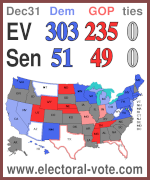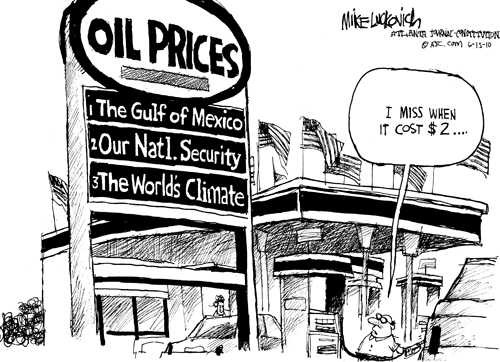What will it take to break our unhealthy dependence on oil?
-
‹ Home
Info
-
Subscribe
-
Users
Links
- All Hat No Cattle
- Andy Borowitz
- Axios
- Barry Deutsch
- Bearman Cartoons
- Beau of the Fifth Column
- Capitol Steps
- Cook Political Report
- Crooks and Liars
- Daily Kos Comics
- Daily Show
- David Horsey
- Derf City
- Digby
- Eclectablog
- Electoral Vote
- Fair and Unbalanced
- Fark Politics
- Five Thirty Eight Politics
- Funny or Die
- Funny Times
- Go Comics
- Hackwhackers
- Heather Cox Richardson
- HuffPost Comedy
- John Fugelsang
- Kung Foo Monkey
- Last Week Tonight
- Margaret and Helen
- Mark Fiore
- Matt Davies
- Matt Wuerker
- McClatchy Cartoons
- News of the Weird
- O'Carl's Law
- Politicususa
- PolitiFact
- Propaganda Professor
- Raging Pencils
- Randy Rainbow
- RCP Cartoons
- Saturday Night Live
- Slowpoke
- Stonekettle Station
- Ted Rall
- The Nib
- The Onion
- Tom the Dancing Bug
- Tom Toles
- USN Political Cartoons
- What Now Toons
-
Tags
Abortion Bush Campaign Finance Cheney Climate Clinton Congress Conservatives Corporations Corruption Deficits Democrats Drugs Economy Education Election Elections Energy Environment Fox News Gays Guns Health Immigration Lies McCain Media Middle East Obama Palin Protests Racism Religion Republicans Romney Spying Supreme Court Taxes Tea Party Terrorism Terrorists Torture Trump Unemployment War
-
Archives

You are Visitor #


10 Comments
This highlights one of many reasons that I’m Anti-Republican. The party worships at the altar of unfettered free market capitalism which simply cannot factor in the total true cost of any business. Social costs, which tend to be ignored by most businesses (they just don’t show up in their ledgers), must be dealt with politically with appropriate and effective regulation. We cannot as a nation leave these regulations up to the states…the federal government (of the PEOPLE) must do this.
You Tea Partiers out there…how can your smaller government deal with this? Are you sure you want to return to the days when some of our rivers were catching fire?
Until alternative energy becomes cheaper we are stuck with oil. If a push is made to use more alternative energy sources right now, the end result will certainly be higher unemployment due to smaller corporate profits. All we can hope for at this point is that more money is spent on research on making cleaner alternative energy cheaper so we can slowly wean ourselves off oil.
100 years ago, people traveled by train. A few cars. People managed. Look what we have done to our planet in 100 years. The Internet is a wonderful alternative to energy use. (I may be wrong here as I really don’t know how much energy the Internet uses.)
Personally, I’d be happy if we just took the first step and removed all the subsidies we taxpayers give to the oil industry, so that the price of oil reflected its true cost (even without adding in social costs and other externals). That would definitely stimulate the production of alternative energy sources.
@Ebdoug, the difference there is that when people travel, they still use cars. No one goes on a “virtual vacation” or uses the internet to visit destinations they once used trains for.
the internet doesn’t power cars or any device for that matter, but rather allows better communication. think the telephone. two separate arenas. think of the internet as an amalgamation of every single computer hooked up to it. 🙂
$6/gallon. Sad but true. We’re talking about addicts here.
The question is how much energy does the Internet save? I know my son, rather than fly to Europe to meet with the rest of his team or potential customers, meets with them on the Web. I’m now spending time with my grandchildren on Skype rather than the long journey. I go to the beach in Maine every single day. No travel. No bugs. (in my case, no cigarette smoke to put me into asthma attacks) A virtual vacation every day. I’m really just asking. http://www.oldorchardbeachwebcam.com/seacoastcam.html
“Personally, I’d be happy if we just took the first step and removed all the subsidies we taxpayers give to the oil industry, so that the price of oil reflected its true cost (even without adding in social costs and other externals). That would definitely stimulate the production of alternative energy sources.”
I agree and am glad to see Iron Knee believes in markets 🙂
Note that 1/5 to 1/6 of the cost of a gallon of gas is already direct tax. http://www.api.org/statistics/fueltaxes/upload/GASOLINE_TAX_MAP_APRIL2010.pdf
hee hee, I DEFINITELY believe in markets. IF something can be done using a free and open market (and that’s a significant IF) then it is always more efficient to do so. Unfortunately, there are lots of things that prevent things from being a free and open market (objects for which the price is not elastic, such as medical care, and lack of competition, such as utilities and monopolies).
We already saw this — when the price of gas hit $4/gallon and it looked like it might keep rising, there was a burst of investment in alternative energy and fuels.
Note that the statistic quoted by Anonymous (that 1/5 of the cost of gas is tax) may be true but it is very misleading. Most gas taxes go to pay for roads and highways. Your automobile would be virtually worthless if there weren’t any roads to drive on.
In fact, gas taxes and car registration fees only pay 51% of road construction costs. The rest is paid out of income, sales, property tax, and bond issues. So here is another example of how we subsidize the true cost of driving our oil fed automobiles. See http://subsidyscope.com/transportation/highways/funding/
Also found an interesting quote from Donald Lubick, who was the US Treasury’s Assistant Secretary for Tax Policy, who said that the petroleum industry “probably has larger tax incentives relative to its size than any other industry in the country”. Estimates place the subsidies received by the oil and gas industry in the US at between $15 and $35 billion.
“Note that the statistic quoted … may be true but it is very misleading. Most gas taxes go to pay for roads and highways. Your automobile would be virtually worthless if there weren’t any roads to drive on.”
More true for diesel taxes and registration fees than gas taxes, a lot goes to state general revenue funds as well. But yeah, the only thing that leads to effective conservation and innovation is cost. Something like Al Gore’s carbon tax = political suicide though.
Gasoline has dropped $.30/gal since the DWH spill started. Speakin of irony 🙂